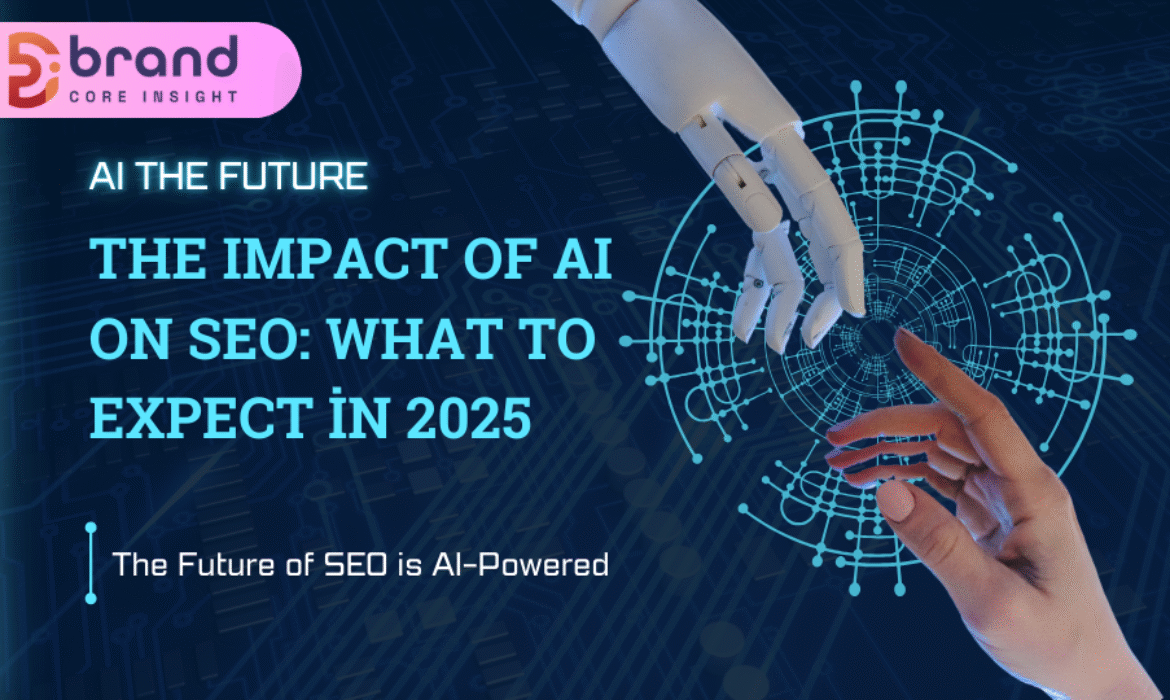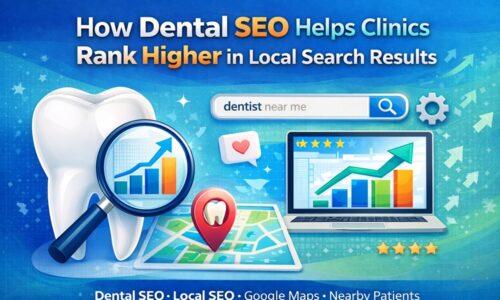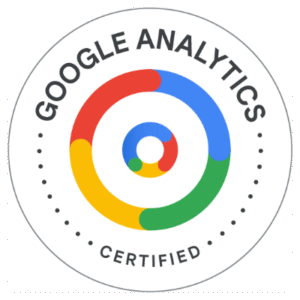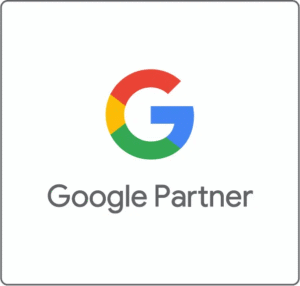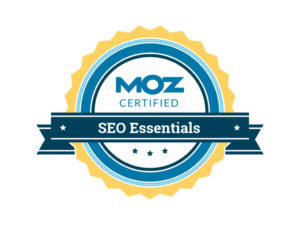Search Engine Optimization (SEO) has always been a dynamic field, evolving with technological advancements and user behavior shifts. However, the rise of AI in SEO is bringing unprecedented changes, reshaping how businesses optimize their online presence.
As we approach 2025, artificial intelligence is no longer just a supporting tool—it’s becoming the backbone of search algorithms, content creation, and user experience optimization. From Google’s BERT and RankBrain to OpenAI’s GPT-4, AI is redefining how search engines understand and rank content.
In this comprehensive guide, we’ll explore:
- How AI is influencing search algorithms
- The role of AI in content creation and optimization
- Voice search and AI-powered assistants
- Predictive SEO and automated optimization
- Ethical considerations and challenges
- How businesses can adapt to stay competitive
By the end, you’ll have a clear understanding of how AI in SEO will shape the future and what steps you need to take to stay ahead.
1. How AI is Transforming Search Algorithms
Search engines like Google have been leveraging AI in SEO for years, but advancements in machine learning are making algorithms smarter than ever.
A. Google’s AI-Powered Algorithms (BERT, MUM, and Beyond)
- BERT (Bidirectional Encoder Representations from Transformers): Helps Google understand the context of search queries better.
- MUM (Multitask Unified Model): A more advanced AI model that processes multiple types of data (text, images, videos) simultaneously.
- Future Algorithms (2025 and Beyond): Expect even more sophisticated models that interpret user intent with near-human accuracy.
B. Personalized Search Results with AI
AI analyzes user behavior—browsing history, location, device type—to deliver hyper-personalized search results. This means SEO strategies must focus on user experience (UX) and behavioral signals rather than just keywords.
C. AI-Driven SERP Features
- Featured Snippets: AI determines the most relevant answers to queries.
- Voice Search Optimization: AI powers voice assistants like Siri and Alexa, requiring natural language optimization.
- Visual Search: AI (like Google Lens) allows image-based searches, making alt text and image SEO crucial.
🔹 Key Takeaway: AI is making search engines smarter and more intuitive, meaning SEO must focus on context, relevance, and user experience.
2. AI in Content Creation and Optimization
Content has always been king in SEO, but AI in SEO is changing how we create and optimize it.
A. AI-Generated Content
Tools like ChatGPT, Jasper, and Copy.ai are revolutionizing content creation by:
- Generating SEO-friendly blog posts
- Automating product descriptions and meta tags
- Creating personalized content at scale
However, Google’s stance on AI content is clear: Quality matters more than origin. If AI-generated content is helpful, original, and well-structured, it can rank well.
B. AI-Powered Content Optimization
AI tools like SurferSEO, Clearscope, and MarketMuse analyze top-ranking content and suggest:
- Keyword density and semantic SEO
- Optimal content length
- Readability improvements
C. Dynamic Content Personalization
AI helps tailor content based on:
- User demographics
- Past interactions
- Real-time behavior
🔹 Key Takeaway: AI is making content creation faster and more data-driven, but human oversight is still essential for quality.
3. The Rise of Voice Search and AI Assistants
By 2025, voice search is expected to dominate 50% of all searches, thanks to AI-powered assistants like:
- Google Assistant
- Amazon Alexa
- Apple Siri
How to Optimize for Voice Search?
- Use natural, conversational language
- Target long-tail keywords (question-based queries)
- Optimize for local SEO (voice searches are often location-based)
🔹 Key Takeaway: Voice search optimization is no longer optional—businesses must adapt to AI-driven conversational search trends.
4. Predictive SEO: AI’s Role in Forecasting Trends
AI doesn’t just react—it predicts.
A. AI-Powered SEO Forecasting
Tools like BrightEdge and SEMrush use AI to:
- Predict keyword trends
- Analyze competitor strategies
- Forecast traffic changes
B. Automated Technical SEO
AI can now:
- Detect crawl errors
- Optimize site speed
- Improve mobile responsiveness
🔹 Key Takeaway: AI enables proactive SEO strategies, helping businesses stay ahead of algorithm changes.
5. Ethical Challenges and Risks of AI in SEO
While AI in SEO offers immense benefits, it also raises concerns:
A. AI-Generated Spam and Low-Quality Content
- Search engines are getting better at detecting AI spam.
- Google’s Helpful Content Update penalizes low-quality AI content.
B. Data Privacy Concerns
- AI relies on user data, raising privacy issues.
- Businesses must comply with GDPR and CCPA.
C. Over-Reliance on Automation
- Human creativity is still irreplaceable.
- Balance AI tools with manual audits.
🔹 Key Takeaway: Use AI responsibly—combine automation with human expertise for sustainable SEO success.
6. How to Prepare for AI-Driven SEO in 2025
A. Invest in AI SEO Tools
- Content Generation: ChatGPT, Jasper
- SEO Optimization: SurferSEO, Clearscope
- Analytics: Google AI, BrightEdge
B. Focus on User Experience (UX)
- Improve page load speed
- Optimize for mobile-first indexing
- Enhance engagement metrics (dwell time, bounce rate)
C. Stay Updated with AI & SEO Trends
- Follow Google’s AI updates
- Join SEO communities (e.g., Moz, Search Engine Journal)
- Attend AI and digital marketing webinars
🔹 Key Takeaway: The future of SEO is AI-driven, user-centric, and adaptive—businesses that embrace this shift will dominate search rankings.
Conclusion: The Future of AI in SEO
The integration of AI in SEO is not just a trend—it’s a fundamental shift in how search engines operate. By 2025, AI will play an even bigger role in:
- Content creation & optimization
- Voice and visual search
- Predictive analytics & automation
To stay competitive, businesses must:
✅ Leverage AI-powered SEO tools
✅ Prioritize high-quality, user-focused content
✅ Adapt to voice and visual search trends
✅ Maintain ethical SEO practices
🚀 Ready to future-proof your SEO strategy? Start integrating AI tools today and stay ahead of the curve!
Call to Action (CTA)
📢 Want to dominate SEO in 2025? Book a free AI SEO consultation with our experts and discover how to leverage AI in SEO for maximum visibility! Contact Us Now
How is AI changing SEO in 2025?
AI is revolutionizing SEO by:
- Powering smarter search algorithms (like Google’s MUM)
- Automating content creation & optimization (via tools like ChatGPT, SurferSEO)
- Enhancing voice and visual search capabilities
- Enabling predictive analytics for keyword and trend forecasting
Businesses must adapt by focusing on user intent, high-quality content, and AI-driven optimization.
Will AI replace human SEO experts by 2025?
No, AI won’t replace SEO professionals—but it will transform their role.
The future of SEO requires collaboration between AI tools and human expertise
AI handles repetitive tasks (keyword research, technical audits)
Humans provide creativity, strategy, and ethical oversight
Does Google penalize AI-generated content?
Google does not penalize AI content outright—it penalizes low-quality, spammy content, whether human or AI-written. To rank well:
Use AI as a tool, not a replacement for expertise
Ensure content is helpful, original, and E-A-T compliant (Expertise, Authoritativeness, Trustworthiness)
Avoid automated gibberish or keyword stuffing
How can I optimize for AI-powered voice search in 2025?
To dominate voice search (expected to be 50% of all searches by 2025):
Improve page speed & mobile-friendliness (voice assistants prioritize fast-loading sites)
Target long-tail, conversational queries (e.g., “What’s the best SEO strategy for small businesses?”)
Optimize for local SEO (voice searches are often location-based)
What are the best AI tools for SEO in 2025?
Top AI-powered SEO tools to leverage:
- Content Generation: ChatGPT, Jasper, Copy.ai
- SEO Optimization: SurferSEO, Clearscope, MarketMuse
- Analytics & Forecasting: BrightEdge, SEMrush, Google’s AI-powered Search Console
Pro Tip: Combine AI tools with manual audits for best results.

